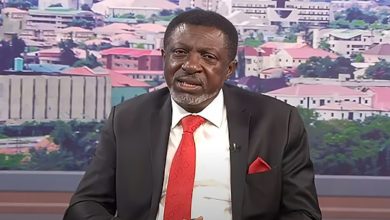NCAA Refutes Orji Kalu’s Claims of Lapses in Pilot Fitness and Regulation
The Nigeria Civil Aviation Authority has refuted Orji Uzor Kalu’s claims of poor pilot training and drug use in aviation.
It said Nigeria maintains strict medical and professional standards aligned with global safety rules.
The Nigeria Civil Aviation Authority (NCAA) has dismissed allegations made by Senator Orji Uzor Kalu regarding alleged weaknesses in pilot training, drug use among flight crews, and lapses in regulatory oversight within the nation’s aviation sector.
Reacting to the senator’s comments made during Wednesday’s plenary session, the Director-General of NCAA, Captain Chris Najomo, issued a statement on Thursday, October 16, reaffirming that Nigeria upholds one of the most robust aviation safety and regulatory systems in Africa, fully aligned with global standards set by the International Civil Aviation Organization (ICAO).
Najomo stressed that every pilot flying within Nigerian airspace must undergo strict medical and professional certification processes before being cleared to operate. He explained that the Nigeria Civil Aviation Regulations (Nig. CARs) Part 8.4.1.4 mandates all pilots to possess both a valid pilot license and a current medical certificate issued by NCAA-authorized aviation medical examiners (AAMEs).
He clarified that the law strictly forbids any flight crew member from operating within eight hours of consuming alcohol or while under the influence of any psychoactive or intoxicating substance that may impair judgment or performance. According to him, the authority conducts regular and random drug and alcohol tests whenever there is a reasonable basis to suspect intoxication.
“Pilots holding Commercial Pilot Licences (CPL) or Airline Transport Pilot Licenses (ATPL) are required to maintain a Class 1 Medical Certificate,” Najomo said. “This certificate is issued only after thorough medical evaluations covering cardiovascular, neurological, psychological, respiratory, metabolic, and visual assessments to ensure full operational fitness.”
He explained that medical certificates are valid for 12 months for pilots under 40 years old and six months for those aged 40 and above, after which fresh medical evaluations must be completed for renewal.
Najomo added that the screening process also checks for signs of mental or behavioral disorders, substance dependence, and diseases that could compromise flight safety. He reaffirmed the NCAA’s unwavering commitment to upholding public confidence in air travel through strict enforcement of regulations and continuous safety monitoring.



